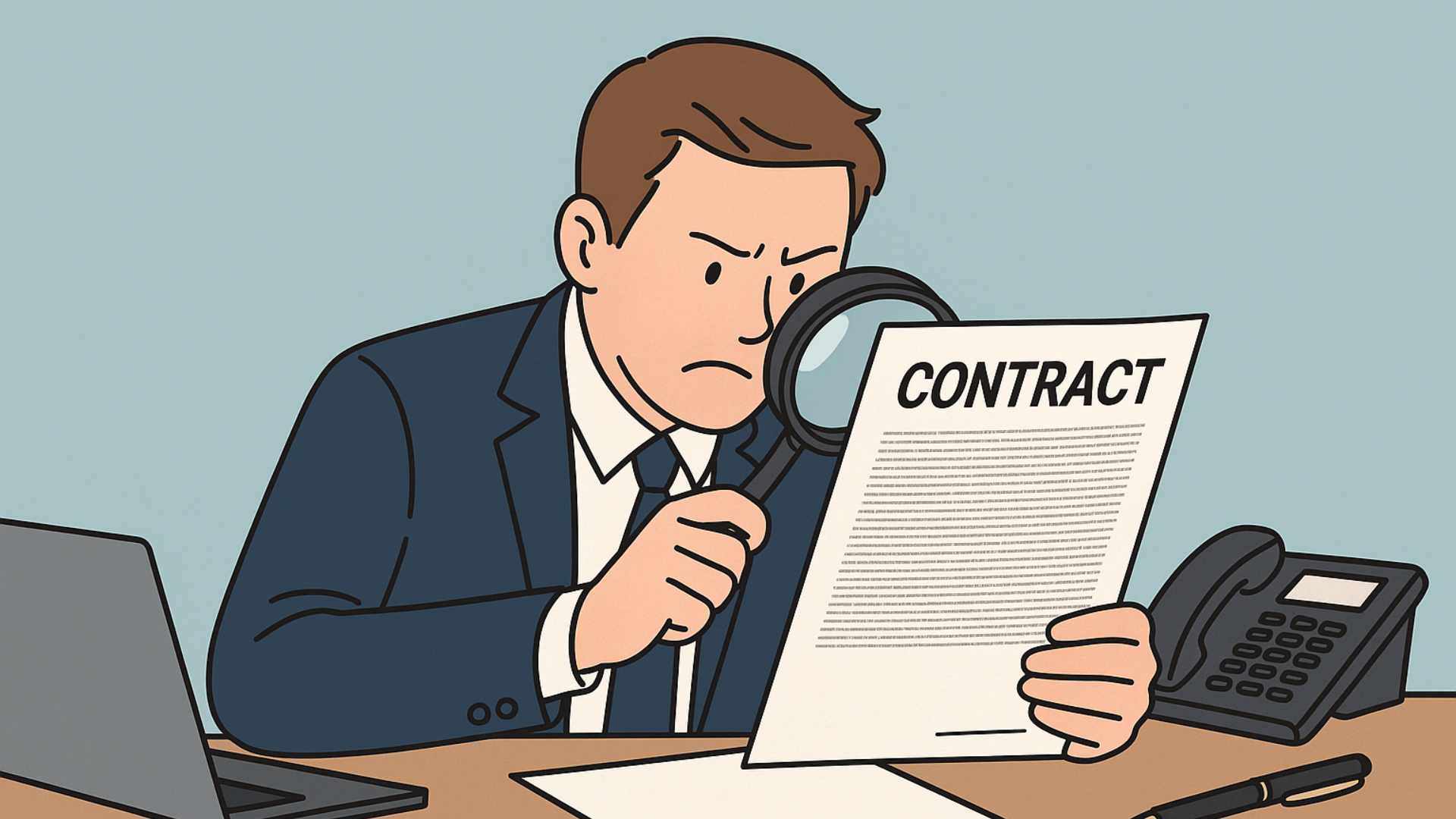What Businesses Should Know About 2025 Automatic Renewal Law Changes
November 18th, 2025
4 min read
By Will Maddox

New York’s updated Automatic Renewal Law, effective November 5, 2025, will require businesses to clearly disclose renewal terms, send advance notices before charges, and make cancellations simple. It’s part of a national trend pushing for more transparency and fairness in contracts.
If you’ve ever had a contract quietly renew and lock you in again, you know how frustrating it can be. Many businesses only realize it happened when it’s too late to cancel. These new laws aim to prevent that by ensuring customers know what to expect before a renewal occurs.
At TeleCloud, we understand both sides. Providers rely on renewals to ensure uninterrupted service, but we also believe customers deserve clarity and choice. Our goal is to make renewals transparent, not transactional.
In this guide, we’ll break down what’s changing, how these laws impact businesses, and how TeleCloud is leading with renewal practices built on trust and simplicity.
Why Are Contract Renewal Laws Being Updated Now?
Across industries, telecom, software, and equipment leasing, automatic renewals have become a common source of confusion and frustration.
Lawmakers have taken notice. Over the past two years, states including California, Vermont, and now New York have introduced new automatic renewal laws (ARLs) to ensure that customers are never caught off guard by fine print or buried terms.
The Federal Trade Commission (FTC) has also increased enforcement around what it calls “negative option” agreements, situations where customers are charged automatically unless they take action to cancel.
These updates share a common goal: to make renewals transparent, cancellations simple, and service terms clear from the start.
For businesses, this shift is about more than compliance; it’s about trust. Providers that make renewal terms easy to understand build stronger, longer-lasting relationships with their customers.
What’s New in New York’s Automatic Renewal Law (Effective November 5, 2025)?
New York’s amended Automatic Renewal Law, part of the 2025–2026 state budget bill, introduces several important updates that companies must follow when offering automatically renewing subscriptions or service contracts.
1. Clearer Disclosure Requirements
Before a provider can obtain billing information, it must present the renewal terms, including cost, renewal frequency, and cancellation deadlines, in a clear and conspicuous way. Customers must know what they are agreeing to before any payment occurs.
2. Advance Notice for Price Changes
Any price increase or “material change” to a contract must be disclosed between 5 and 30 days before it takes effect.
Providers must either:
- Obtain affirmative consent from the customer before charging the new rate, or
- Allow customers to cancel within at least 14 days after the charge and receive a prorated refund.
3. Simplified Cancellation Process
The law requires a cancellation mechanism that is as easy to use as the method used to sign up. If a business enrolls online, they must be able to cancel online. If they sign up by phone, they must be able to cancel by phone as well.
These new standards align closely with California’s renewal regulations and the FTC’s proposed “click-to-cancel” rule, signaling a national trend toward greater transparency and customer control.
4. Renewal Reminders for Long-Term Contracts
For contracts lasting a year or more, providers must send a renewal reminder 15–45 days before the renewal date. This notice must include:
- The renewal date
- The amount to be charged
- Instructions for how to cancel
5. Clear Communication of Changes
Any significant updates to terms, pricing, or policies must be communicated in the same manner customers originally selected, whether that’s by email, text, or app notification.
How Do These Changes Affect Businesses (Even Outside New York)?
Although New York’s new law applies directly to consumer contracts, its influence will extend far beyond state lines. Many providers operating nationally will need to standardize their renewal processes to ensure compliance everywhere they do business.
What This Means for B2B Customers
Most automatic renewal laws were written with consumers in mind, but the same principles are increasingly shaping business-to-business agreements. Companies serving both audiences, like telecom and software providers, are adopting these transparency practices across all contracts, not just consumer ones.
For businesses, this shift means:
- More visible renewal and cancellation terms
- Proactive renewal reminders
- Easier methods to adjust or terminate agreements
Even if your contract isn’t covered by these new laws, you can expect providers to begin aligning with these standards.
Common Issues Businesses Still Face With Renewals
Despite growing regulation, many organizations continue to face challenges managing renewals. Based on years of helping companies review telecom contracts, here are the most common pitfalls:
- Hidden Terms: Renewal clauses buried deep in fine print.
- Short Cancellation Windows: Many contracts require 30–90 days’ notice before the renewal date.
- Unexpected Fees: Early termination charges or repayment of waived promotions.
- Equipment vs. Service Confusion: Equipment leases often have different renewal and cancellation rules than service agreements.
- Lack of Communication: Many providers fail to notify customers before renewals occur.
The result is often the same: businesses unknowingly roll into another one-, two-, or three-year agreement before realizing what happened.
How TeleCloud Handles Renewals Differently
TeleCloud’s renewal philosophy is simple: transparency builds trust. We want every business to feel informed and in control when reviewing their communication agreements.
Here’s how we approach renewals differently:
- Advance Reminders: We reach out well before any renewal date to review your account and discuss options.
- Collaborative Planning: Renewal conversations are opportunities to adjust your services to your current needs.
- Simple Cancellation: If you choose not to renew, we make the process clear and straightforward, with no hidden steps or buried conditions.
- Proactive Compliance: Our communication standards already meet or exceed new state-level laws for transparency and notification.
Our goal is to make renewals something you look forward to, not something you fear.
What Can Businesses Do Right Now to Protect Themselves?
Even as new laws roll out, you can take proactive steps to protect your organization today.
Before signing a new contract:
- Read all renewal and cancellation terms carefully.
- Ask for the renewal period to be shortened or converted to month-to-month after the initial term.
- Request written renewal reminders.
During your contract:
- Mark renewal dates in your calendar and set alerts.
- Review service performance regularly to ensure your agreement still fits your needs.
When renewal approaches:
- Compare pricing and features with other providers.
- Use your renewal as leverage to negotiate better terms or additional value.
- Get professional advice if you’re unsure how to interpret contract language.
The Bigger Picture: Transparency as a Competitive Standard
Renewal laws are evolving to make contracts clearer, cancellations easier, and business relationships more transparent. But real progress goes beyond compliance, it’s about communication. Clear terms and proactive reminders build trust, reduce frustration, and help customers make confident decisions.
At TeleCloud, we believe transparency should come standard. Every renewal is an opportunity to reassess, simplify, and ensure your services still fit your goals. If your contract is coming up for renewal, now is the time to take control.
Schedule a Free Telecom Bill Audit to review your agreement and make informed decisions with confidence.
- https://www.kelleydrye.com/viewpoints/blogs/ad-law-access/ny-quietly-amends-automatic-renewal-law
- https://www.pearlcohen.com/important-developments-in-subscription-auto-renewal-rules-across-the-u-s/
- https://perkinscoie.com/insights/update/new-york-and-colorado-update-auto-renewing-subscription-requirements
Topics:







